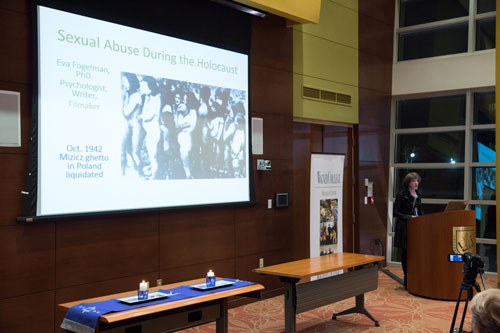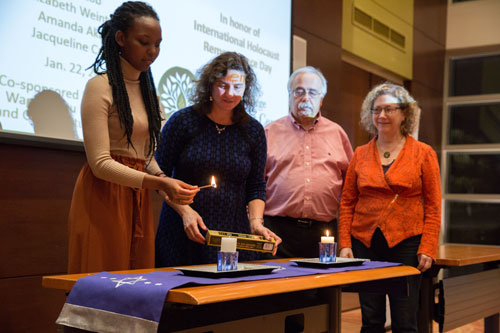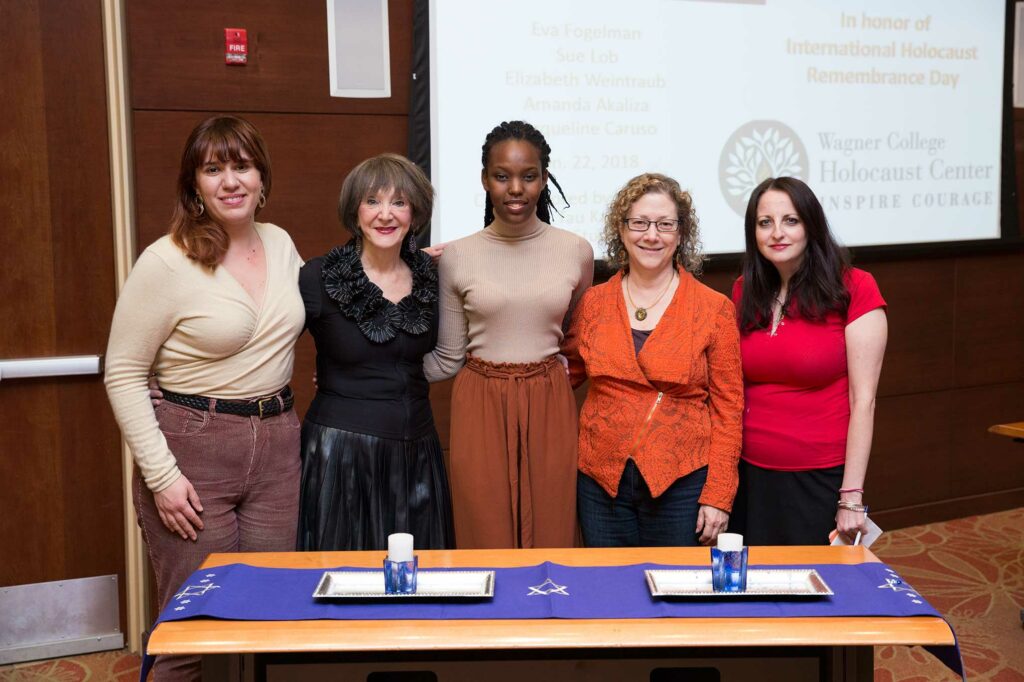In honor of International Holocaust Remembrance Day, the Wagner College Holocaust Center took on a topic with very contemporary resonance: sexual assault.
International Holocaust Remembrance Day is held on January 27, the anniversary of the liberation of Auschwitz in 1945.
The January 22 program, “Sexual Assault and Genocide: Past, Present, Future,” featured a talk by psychologist Eva Fogelman. Her research and writing has brought attention to the prevalence of sexual violence against women during the Holocaust.

Because many survivors were ashamed and afraid to reveal what had happened to them, and many others were killed after being sexually abused, it’s difficult to document this type of violence. Fogelman noted that in the collection of Holocaust survivor interviews in the Shoah Foundation, rape and sexual molestation is mentioned in about 1,000 testimonies. Her research and interviews with female survivors show that “the fear of rape was ever-present.”
Fogelman emphasized that sexual violence has nothing to do with sexual gratification, but is an expression of aggression motivated by entitlement, sadism, and masculine ego gratification. Those motivations led to its prevalence despite the Nazis’ policy of “Rassenschande,” forbidding sexual contact between Germans and Jews.
Following Fogelman’s presentation, four local leaders in the prevention of sexual violence against women addressed this topic’s contemporary resonance and suggested action projects to bring about change.
Wagner student Amanda Akaliza ’19 is from Rwanda. During the 1994 genocide, which occurred before she was born, an estimated 800,000 people were killed, and as many as 250,000 women were raped. Akaliza’s father fought the Hutu regime, while her mother helped the survivors and refugees. The family adopted a girl who was orphaned during the genocide.

Akaliza emphasized that the rape survivors were not passive victims but fighters who spoke up for themselves. As a result of women’s testimony at the International Criminal Tribunal for Rwanda, rape was recognized as a weapon of genocide. Today, Rwanda is considered one of the world’s most advanced countries in achieving gender equality.
Susan Lob, founder of a New York City’s Voices of Women advocacy organization for domestic violence survivors, and Elizabeth Weintraub ’01, a licensed master social worker, both spoke of their Jewish families’ legacies of silence about the traumas of the Holocaust. They also emphasized the importance of allowing survivors of sexual violence to tell their stories — both for personal healing and to prevent future violence.

Wagner student Jacqueline Caruso ’18 co-founded a group called Women of Wagner last year, and she spoke of their efforts to empower women and change the social power imbalance that allows sexual abuse to flourish.
At the program’s end, all members of the large audience were encouraged to connect with action projects locally and to write their ideas for change on a poster.
“The goal is to connect history with the present,” said Wagner history professor Lori Weintrob, director of the Holocaust Center. “Recognizing the problem of violence against women helps us understand what happened in the past. Being open to such conversations can help us make change for the future. We all need to hold ourselves accountable not to be silent bystanders.”